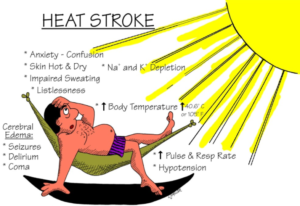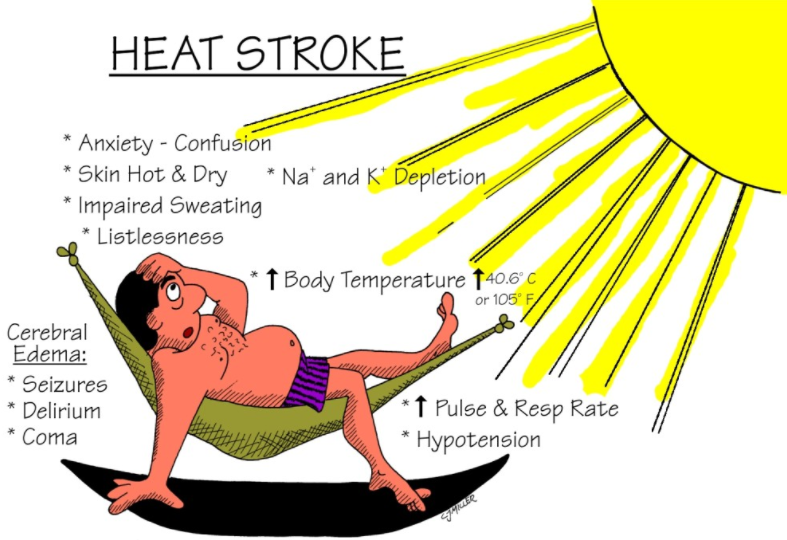After we have discovered that babies or young toddlers have higher core body temperature and also, the differences between heat exhaustion and heat stroke,
let us focus on the neurological impairment or cognitive dysfunction (medical term) after babies or young toddlers had experienced heat stroke.
According to the medical term cognitive, it refers to mental abilities and processes, and includes memory, knowledge, attention, reasoning, problem solving, and comprehension. Research showed that babies and young toddlers that had experienced even a mild heat stroke, there may be permanent cognitive impairment damage, especially in the short-term memory, processing of information, and attention aspects and worst of all, cell death. In one study of volunteers, results show that there was memory impairment with temperature of only 101.8 ̊ F (38.8 ̊ C), which is only about 2 to 3 degrees higher than normal baby body’s temperature (97.5 ̊ F or 36.4 ̊ C)!
There are three main stages of neurological effects of heat stroke, please see the below points for explanation including Central Nervous Dysfunction (CNS).
CNS dysfunction: includes delirium (abrupt change in the brain that causes mental confusion and emotional disruption), coma, epileptic seizures (repetitive seizures due to disorder of the brain) and/or convulsions.
Acute stage (early stages 2-48 hours after heat
stroke):
- Disturbance of Consciousness (DOC): difficulty in maintaining
consciousness. - Convulsion: muscles
contract and relax quickly and causes uncontrolled shaking of the body. Profound mental change: as described above,
such as memory, processing of information, etc. - Cardiovascular collapse: heart, veins and major artery collapse.
Convalescent stage (recovery stage):
- Temporarily aphasia: inability to communicate.
- Transient Cerebellar Dysfunction: loss of speech or unclear articulation of speech, brain tumor, bleeding in the cerebellum area of the brain (part of brain that is responsible for movement, senses, and learning motor behaviors).
Late permanent stage:
- Permanent Cerebellar Syndrome: problems related to gait (imbalance, shuffling, frequent falls, staggering, and unable to move), co-ordination, speech, visual, and vertigo problems (feels like everything is spinning around you).
Think of how traumatic it must be for an adult to live through these experiences, and then ask yourself why would we, as responsible parents, allow our babies to go through these awful symptoms themselves?
Pic:
www.firstaidforfree.com/first-aid-for-heatstroke-and-hypothermia/
Text:


